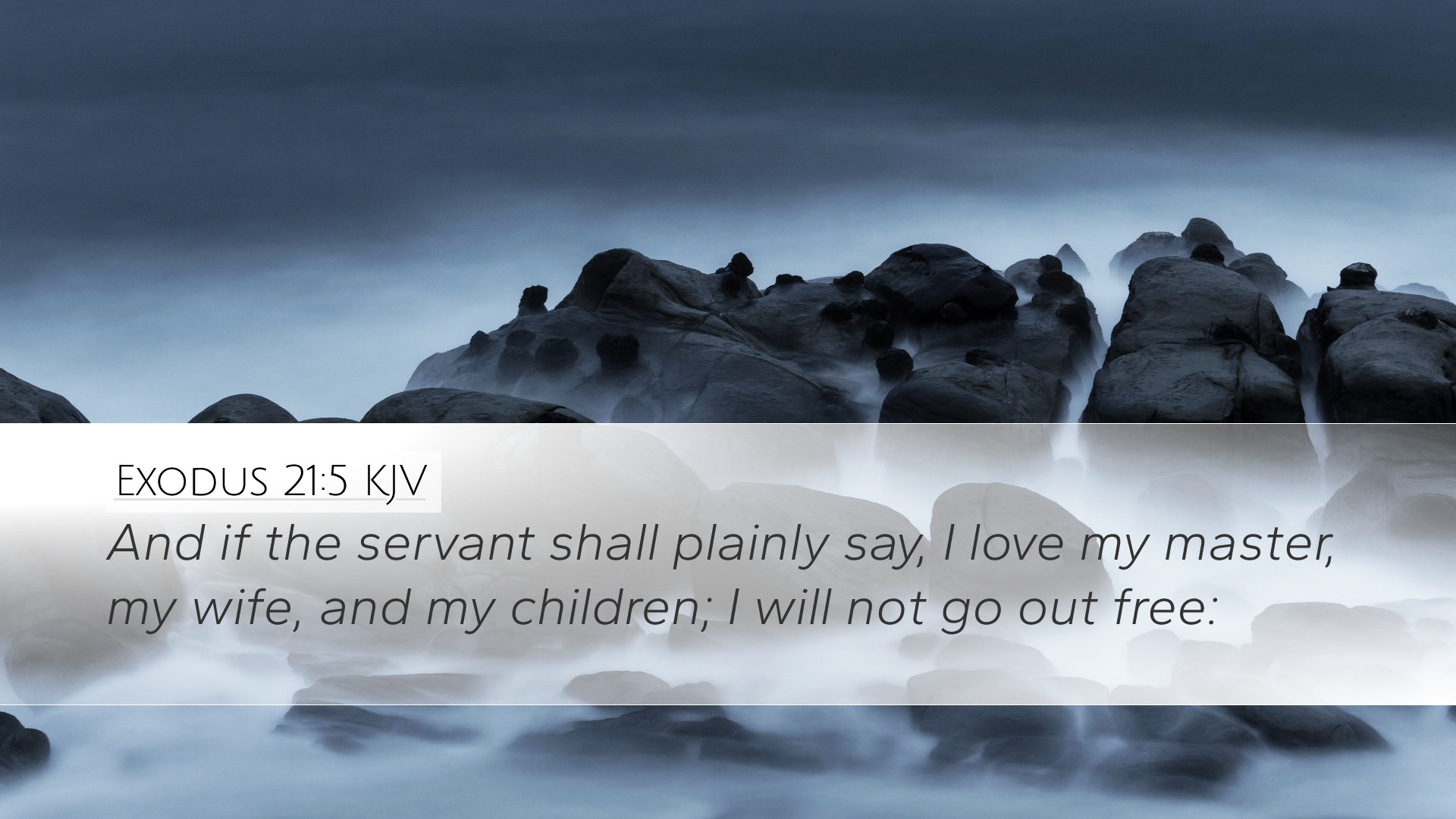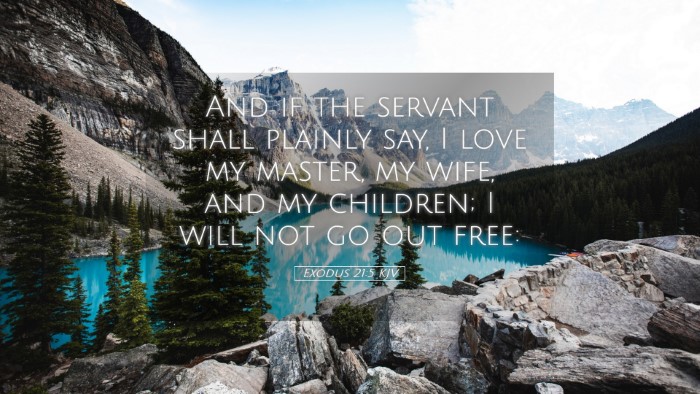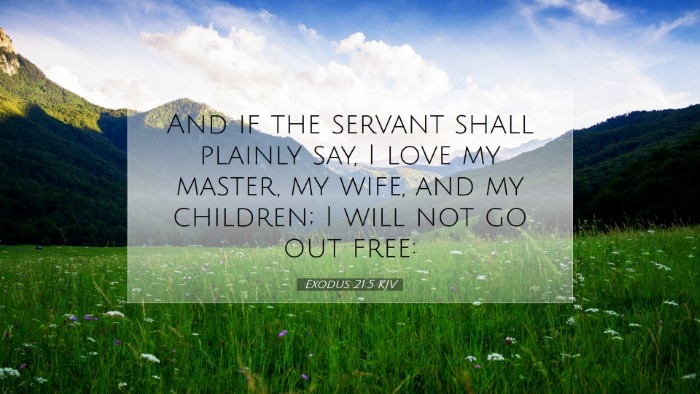Commentary on Exodus 21:5
Verse: "But if the servant shall plainly say, I love my master, my wife, and my children; I will not go out free." (Exodus 21:5 KJV)
Introduction
The social and legal context of Exodus 21:5 arises from the broader chapter dealing with the laws regarding servitude and the treatment of servants in ancient Israel. This verse, in particular, highlights the choice of a servant to remain with his master, motivated by love and the bonds of family. The theological implications of servitude, freedom, and commitment are vital in understanding the nature of God's covenant relationship with His people.
Contextual Analysis
This section provides an overview of the societal implications of servitude in ancient Israel. The laws presented in Exodus 21 regulate the conditions under which a servant would serve and how they were to be treated. Unlike modern concepts of slavery, the relationships established in these passages were often rooted in economic necessity and familial bonds.
Matthew Henry's Commentary
Henry emphasizes that the servant's declaration, "I love my master," is a profound expression of loyalty and affection. He points out that the master-servant relationship in the context of the ancient Near East often resembled a familial bond, founded on mutual respect and care. The servant chooses to remain with his master, signifying that true freedom comes from love rather than mere legal status.
Albert Barnes' Insights
Barnes notes that the servant's choice to continue serving is not born out of compulsion but rather from a place of genuine affection. The commentary highlights the voluntary nature of this decision, suggesting that it reflects a deeper understanding of responsibility and commitment. Furthermore, he contemplates the implications of this choice on theological grounds, representing the choice of believers to remain in a covenant relationship with God.
Adam Clarke's Perspectives
Clarke expands the discussion by analyzing the cultural practices associated with servitude. He explains the significance of the "ear being bored" (found in the subsequent verses) as a symbol of commitment. This act was a public declaration of the servant's loyalty and love, marking a transition from a position of obligation to one of voluntary service grounded in affection.
Theological Implications
Exodus 21:5 serves as a powerful metaphor for the believer's relationship with God. Just as the servant chooses to remain with his master out of love, so too are believers called to choose a relationship with God based on love, rather than mere obligation or fear.
Freedom in Commitment
- The Paradox of Servanthood: This verse illustrates the paradox of freedom in commitment; true freedom is found not in autonomy but in devoted service. The servant's choice symbolizes the believer's response to God's love and grace, leading to a profound commitment to His will.
- Faithfulness Through Trials: The servant's declaration also highlights the faithfulness required in difficult times. Pastors and theologians may draw parallels between this commitment and the call for Christians to remain steadfast amid life's trials.
Implications for Ministry
This verse invites reflection on ministry practices and the way pastors approach their congregations. It calls for a pastoral model that fosters relationships of love and commitment, encouraging believers to respond to God's grace with a willing heart.
Conclusion
Exodus 21:5 encapsulates a rich tapestry of meanings related to love, commitment, and the dynamics of freedom among God's people. The insights from Matthew Henry, Albert Barnes, and Adam Clarke enhance our understanding of the verse, stressing that true freedom is found not merely in legal status but in loyal relationships. This passage serves as a vital reminder for believers and leaders alike to reflect on their commitments and the nature of their relationships, both with God and others.
Reflection Questions
- What does it mean to you personally to choose to serve God out of love?
- How can we foster deeper relationships within our church communities that reflect this principle of committed love?
- In what ways does the concept of voluntary service challenge our understanding of faith and obedience?


